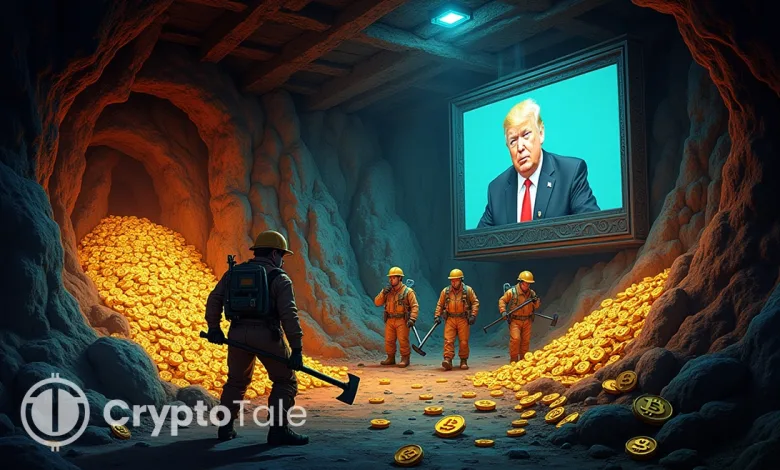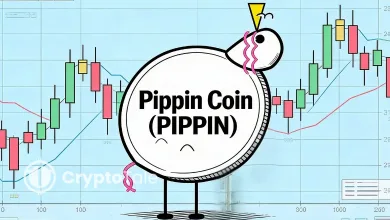US Bitcoin miners face hurdles despite tariff pause relief

- US Bitcoin miners rush to import rigs as Trump’s 90-day tariff pause eases costs.
- A 10% baseline tariff still applies despite the temporary relief on mining rig imports.
- Mining rig prices in the US rise as firms accelerate purchases before July 8 deadline.
The Trump administration’s 90-day pause on tariffs offers temporary relief to U.S. Bitcoin miners, yet the industry still faces underlying challenges. The pause, which will last until July 8, 2025, reduces tariffs on imported mining rigs from most countries to a baseline 10%. However, this still leaves U.S. miners at a disadvantage compared to international counterparts, especially those operating from regions like China.
Short-Term Rush for Mining Machines
During this phase, many U.S. mining operations plan to accumulate mining rigs as the tariffs will return in three months. According to his assessment, Hashlabs CEO Jaran Mellerud predicted that miners would experience a brief increase in their import activities.
Further, he noted that a 10% tariff incurs higher capital costs, affecting long-term business performance. The unpredictable nature of the tariff pause induces additional obstacles because miners must execute equipment imports before the next tariff increase.
The tariff hike has already pushed up mining rig prices in the U.S. According to Luxor Technology’s COO, Ethan Vera, U.S. miners are experiencing higher prices for hardware and assembly costs. As a result, many are accelerating their purchases to avoid future cost increases.
Policy Uncertainty Hurts Long-Term Growth
Experts predict long-term U.S. Bitcoin mining industry growth will suffer due to unstable tariff policies, leading to a temporary import spike. According to Mellerud, high-frequency policy changes in the US Bitcoin mining sector caused “policy whiplash.” The uncertain market makes it difficult for U.S. mining operations to develop proper strategic plans since miners need predictable conditions to create solid investment strategies.
Luxor’s Vera explained that the ongoing uncertainty could push her company to redirect its expansion strategy towards markets beyond the U.S. because international trade barriers appeared more favorable. U.S. Bitcoin mining faces risk because regulatory uncertainties create an environment where less restricted nations obtain greater international mining advantages.
Related: Pakistan Eyes Surplus Electricity to Boost Bitcoin Mining
Impact on Bitcoin Price and Mining Operations
The Bitcoin market faces multiple consequences stemming from the implementation of tariffs. The Bitcoin market has experienced price fluctuations when trade wars generated instability. Since its peak in January, the value of Bitcoin has decreased by 26% to reach its current price of $80,555, which represents a 1.2% drop in the last 24 hours. This price movement reflects the broader market volatility influenced by geopolitical factors, including tariffs.
President Trump has backed domestic Bitcoin mining, but actions by his administration are ultimately giving the U.S. mining industry the cold shoulder. Through his endorsement of the “American Bitcoin” project under Hut 8 leadership, President Trump supports U.S. Bitcoin mining despite global market restrictions caused by his country’s imposed tariffs. U.S. tariff policies present complex challenges to the mining industry, resulting in unstable market conditions that prevent growth and reduce investment opportunities.




